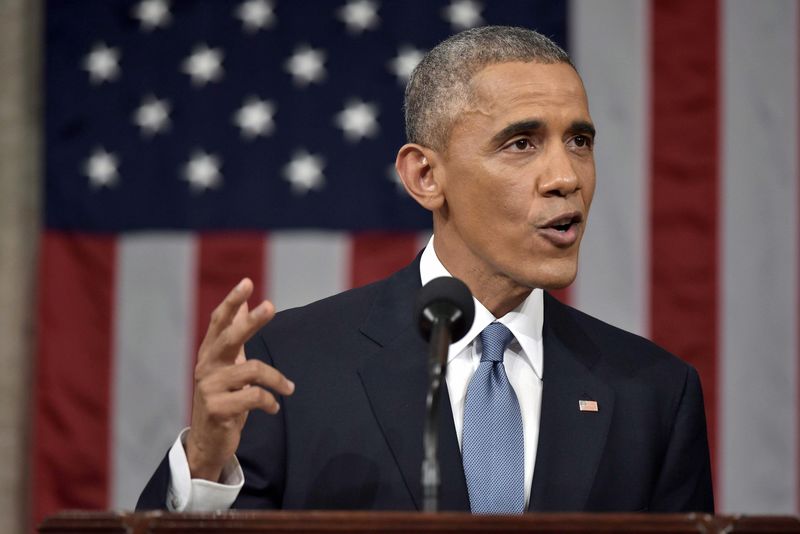By David Lawder
WASHINGTON (Reuters) - President Barack Obama's renewed push for major free trade deals ran into stiff opposition from his own party on Wednesday as a group of House Democrats vowed to do everything they can to deny him greater trade negotiating powers.
In his State of the Union address, Obama called on Congress to approve "fast track" authority for big trade agreements with Asia-Pacific and European countries, which allow only a yes or no vote on the finished product. The authority is intended to coax better deals from trade partners who have confidence that Congress won't tinker with the final terms.
Obama's plea was welcomed by Republicans, but over 20 Democrats and liberal independent Senator Bernie Sanders said they wanted to hang on to the right to scrutinize trade deals to prevent currency manipulation and ensure protection for workers and the environment.
Nine of 16 first-year Democrats in Congress signed a letter to Obama opposing fast-track authority.
Many Democrats fear a deal with Japan, Vietnam and other Asia-Pacific nations will siphon away U.S. manufacturing jobs, much in the way they say the 21-year-old North American Free Trade agreement did.
"The Trans-Pacific Partnership will only accelerate this problem and make it worse. It will make it even easier for corporations to send American manufacturing jobs overseas," said Representative Rosa DeLauro of Connecticut, who predicted there were enough votes to block the authority.
Passage of fast-track authority has been traditionally difficult in Congress, with the last coming by a three-vote margin in the House of Representatives in 2002. The numbers work against Democratic opponents now, with Republicans holding 246 House seats, their largest majority since shortly after World War Two, to the Democrats' 188.
Both sides enlisted businesses to spread the word, and members of Obama's economic team planned to contact about 80 House Democrats on the issue.
"We are confident we can and we will get it done," Evan Medeiros, senior director for Asia at the U.S. National Security Council, said at the Brookings Institution.
First-year congresswoman Debbie Dingell and other Michigan Democrats complained the trade talks have not included any deterrents to currency manipulation. Japan's deliberate moves to weaken the yen have given a big cost advantage to Japanese automakers, she said.

"If we don't address currency – I call it the mother of all trade barriers - we are not going to have a level playing field," she said.